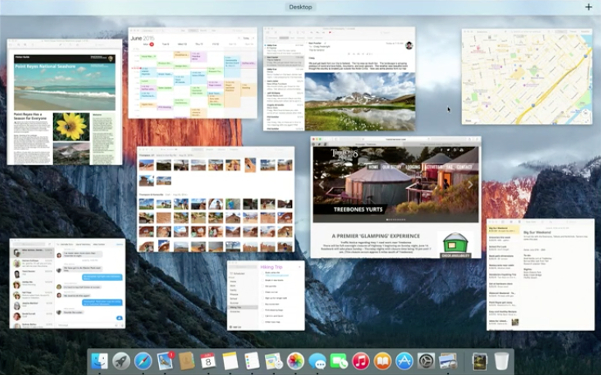Should Apple merge iOS and OS X together?
And if the company doesn't, will Microsoft benefit?

On stage a few weeks ago, Tim Cook, the CEO of Apple, stated that the company has "no intention" of merging iOS and OS X, Cupertino's two main operating systems upon which almost all of its hardware is based. While it may seem odd to consider merging two almost completely contradictory elements – after all, what does the iPhone have in common with the Mac Pro? – another technology giant is currently doing just that, and going ahead merging a phone operating system with a desktop one.
Second time lucky?
With Windows 10, Microsoft is attempting what was previously considered a bad idea and, to a degree, the evidence does bear out this conclusion. The launch of Windows 8, the first attempt at combining the two, did not go down well with customers and forced Microsoft into back-tracking on certain key areas, such as the Start menu which got lost in the mobile-ification of Windows. However, the fortunes of Windows 10 seem a little better.
At an event on October 6, Microsoft announced that over 110 million people had installed Windows 10 onto a device, a staggering achievement considering the software has only been available for a little over two months. The success of Windows 10 is, in the most part, down to Microsoft's focus on what users want, not what is in vogue with the technology press. By starting the Windows Insider programme, Redmond accurately gauged the feeling towards the OS and only implemented things users really wanted, such as the Start menu.
Of course, Apple is continuously doing this. John Gruber, one of the foremost bloggers on the firm, wrote that Apple is one of the most – if not the most – customer-driven company around today, taking the feelings of users into account every step of the way. Even the most radical ideas, such as the original iPhone's lack of keyboard, are thought of with the user in mind and are ultimately shown to be good choices in time.
Listen up, Tim
The case for merging iOS and OS X is quite strong, and Cook would do well to listen. Developers, the cornerstone of Apple's products, are becoming disenchanted with the company's offerings, especially with regard to the App Store which doesn't offer demos or the ability to "upgrade" to the latest version for a reduced price. Some developers have even taken it as far as claiming that Apple's platforms cannot sustain anything other than a hit game or an uber-niche piece of enterprise software. Merging iOS could solve these perceived shortcomings.
Developing software is long and laborious work and if developers start to feel that the monetary rewards are insufficient then they may move elsewhere. (There are, of course, other rewards, but none put food on the table quite like cold, hard cash).
That "elsewhere" could end up being Windows 10, for one key reason: developing an app for Windows 10 is also developing an app for HoloLens, the virtual reality headset, for Xbox, and Windows 10 Mobile. For the same effort, the app can be used across tens of millions of devices, all because Microsoft made one operating system.
Are you a pro? Subscribe to our newsletter
Sign up to the TechRadar Pro newsletter to get all the top news, opinion, features and guidance your business needs to succeed!
There are drawbacks, and they do number highly. For example, the experience on a mobile device is impaired by the fact that it is also designed for a laptop and a desktop. On a MacBook, everything is geared toward being controlled by a keyboard and a mouse. On a Windows 10 machine, however, the same cannot be said and this can lead to some odd compatibility issues.
A good example of this is the Office suite. When it was first released on the Surface back in 2012, the suite of apps was designed for a mouse and keyboard but was being used on a touch device (the Surface). This would never happen for Apple – iWork is distinct on both – but it did for Microsoft, and users didn't get the best experience as a result.
Max Slater-Robins has been writing about technology for nearly a decade at various outlets, covering the rise of the technology giants, trends in enterprise and SaaS companies, and much more besides. Originally from Suffolk, he currently lives in London and likes a good night out and walks in the countryside.